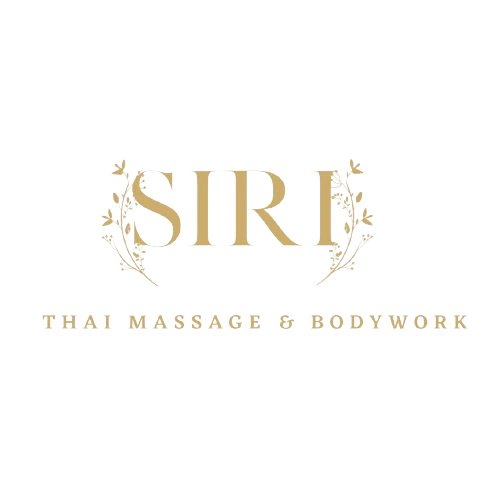0 / 5
(0)0 total reviews
Postpartum (Gift Card)
Short description
Expert Therapists: Our team of highly trained and experienced massage therapists are dedicated to providing personalized treatments tailored to your specific preferences and concerns. Their expertise ensures that you receive the highest quality care during your session.
Share
Guaranteed Safe Checkout
Postpartum care in Thai culture, known as "Yu Fai," is a traditional practice that has been passed down through generations. This practice involves a period of confinement for new mothers after childbirth, typically lasting 30 to 40 days. The main goal of Yu Fai is to help the mother recover physically and emotionally after giving birth. Here are some key elements of postpartum Thai care:
-
Herbal Steam Bathing:
- Thai mothers take herbal steam baths to help cleanse and heal their bodies. The steam is believed to help improve blood circulation, expel impurities, and close the pores that were opened during childbirth.
-
Hot Compresses:
- These are applied to the abdominal area and sometimes the entire body. The compresses typically consist of a selection of herbs wrapped in a cloth. They are believed to help reduce inflammation and promote internal healing.
-
Dietary Restrictions and Nutritious Meals:
- Thai postpartum care places emphasis on nutrition. New mothers are often given specific diets to follow, consisting of warm and easily digestible foods. Common ingredients include ginger, lemongrass, and galangal, which are believed to aid in digestion and restore energy
-
Avoiding Cold:
- New mothers are encouraged to keep warm at all times. They are advised to avoid cold drinks and foods, as well as exposure to wind and cold temperatures, as these are believed to disrupt the body’s balance.
-
Rest and Seclusion:
- Rest is a key aspect of Yu Fai. New mothers are encouraged to stay in a confined, warm space to rest and bond with their newborn. During this time, they may receive support and care from female family members.
-
Massage and Bodywork:
- Traditional Thai massage is often given to postpartum women to help realign the body, relieve muscle tension, and promote overall relaxation.
-
Wearing a Belly Binder:
- Some Thai mothers wear a cloth or band tightly wrapped around their abdomen. This is believed to help the uterus return to its normal size and position more quickly, and to reduce swelling and support the lower back.
-
Rituals and Blessings:
- Some families perform spiritual or religious rituals to protect and bless the mother and the newborn child. These can include chanting, prayers, and ceremonies led by monks or elder family members.
Please note that these practices can vary widely among different families and regions in Thailand. It is important for each woman to consider her own comfort, health needs, and beliefs, and to consult with a healthcare professional before adopting any postpartum practices.
Postpartum traditional Thai care massage, also known as postnatal massage, is a wonderful way for a new mother to care for herself after childbirth. It aims to help restore the body back to its pre-pregnancy condition, alleviate muscle tension, and promote overall relaxation.
Here are some key components and benefits of postpartum care massage:
-
Relieving Muscle Tension:
- After giving birth, a new mother’s body can hold a lot of tension, particularly in the shoulders, neck, and lower back. Massage helps to release this tension and relax the muscles.
-
Reducing Swelling:
- Massage can stimulate blood flow and lymphatic drainage, helping to reduce swelling that often occurs after childbirth.
-
Promoting Emotional Well-being:
- The soothing nature of a massage can help to reduce stress hormones, encourage relaxation, and improve the mood, which can be especially beneficial for mothers who may be experiencing postpartum depression or anxiety.
-
Improving Sleep:
- Many new mothers struggle with sleep deprivation. A relaxing postpartum massage can help improve sleep quality.
-
Supporting Recovery from Cesarean Birth:
- For mothers who had a cesarean section, gentle massage (avoiding the incision area) can help to promote circulation and healing. Always get clearance from a healthcare professional before beginning massage after a cesarean section.
-
Encouraging Abdominal Recovery:
- Some postpartum massages include gentle abdominal techniques that can help support the uterus as it returns to its pre-pregnancy size and position. This may also help to tone and firm the belly.
-
Breast Massage:
- For those who are comfortable, gentle breast massage can help to relieve congestion, reduce swelling, and encourage milk flow for breastfeeding mothers. This should be done by a trained professional and with the mother’s consent.
-
Timing:
- The best time to start postpartum massages can vary for each woman. It’s generally safe to begin a few days after vaginal birth, but it’s best to wait until you’ve received clearance from a healthcare professional, especially after a cesarean section.
-
Finding a Qualified Massage Therapist:
- It is important to find a massage therapist who is trained and certified in postnatal massage. They will understand the unique needs of a postpartum body and will know how to provide the most effective and safest care.
-
Personal Comfort and Boundaries:
- A postpartum massage should always be conducted with the utmost respect for the new mother’s comfort and boundaries. The therapist should communicate clearly and frequently about pressure, focus areas, and the mother’s comfort level.
Always consult with a healthcare professional before starting any new postpartum care routine, including massage, to ensure that it is safe and appropriate for your specific situation.








